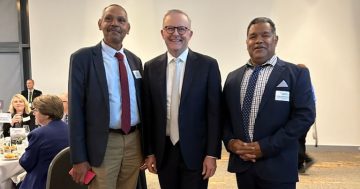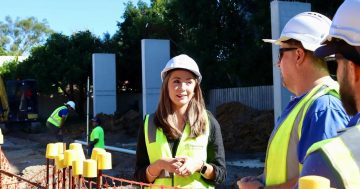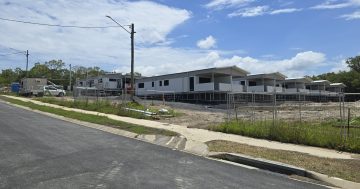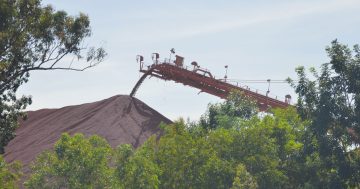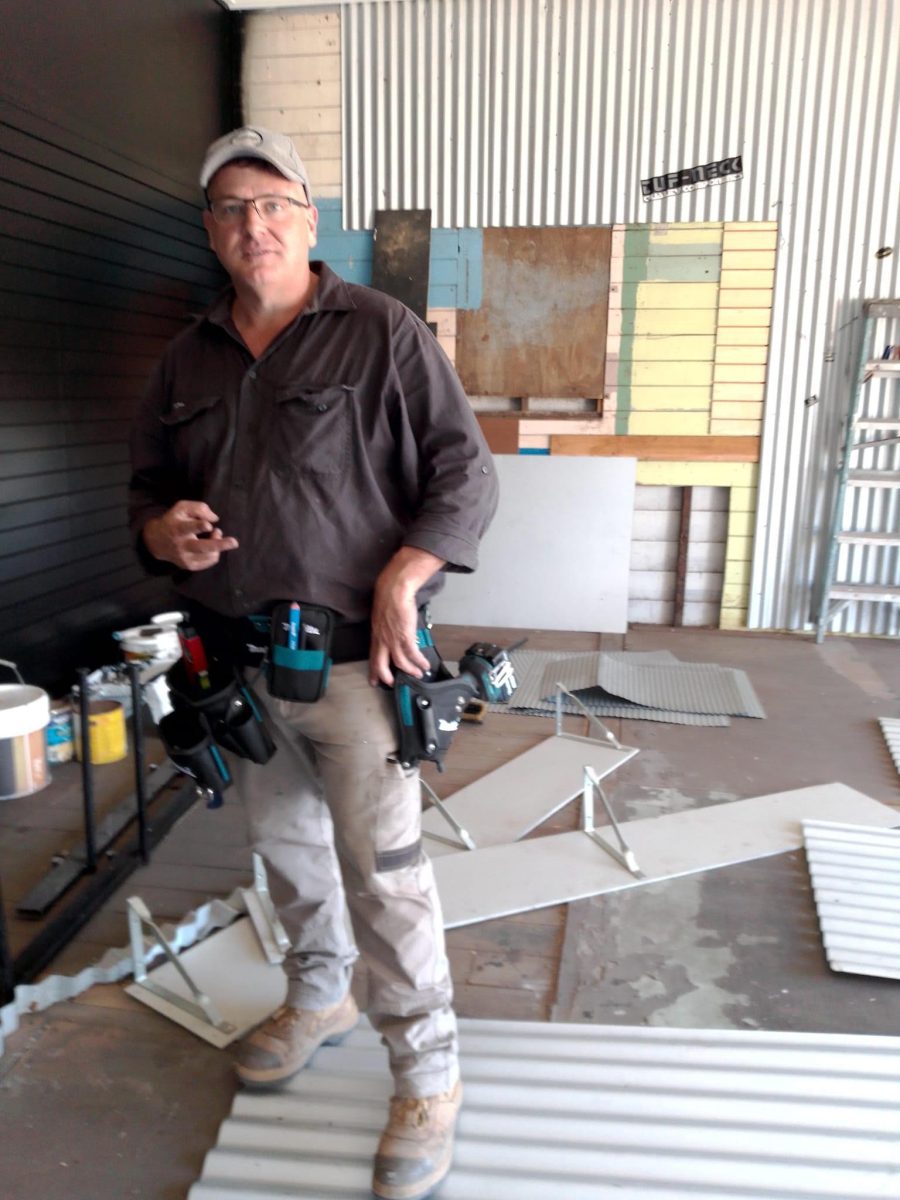
ZK Construction Group managing director Zane Brache has criticised the State Government’s plan to replace traditional remote housing with plug-in modular options, saying the strategy will destroy the apprenticeship pathway. Photo: Supplied.
The boss of an Indigenous-owned construction company says the Queensland Government’s plan to use prefabricated modular buildings to help solve the state’s remote housing crisis will destroy local apprenticeship pathways.
The one- to four-bedroom and plug-in modules were developed by the government architect and QBuild, with the government lauding them as a way to build more homes faster through its Homes for Queenslanders program.
The buildings are currently being constructed at the government’s Rapid Accommodation and Apprenticeship Centre (RAAC) in Brisbane, but will soon be manufactured in Cairns, with the finished product then transported to Cape York and the Torres Strait for installation.
While the government has stated the new RAAC in Cairns will provide trade and training opportunities, ZK Construction Group managing director Zane Brache said he believed the strategy was flawed, and may even put the government in breach of its own Indigenous procurement policy.
“By putting these modular builds in, it completely kills the apprenticeship path,” Mr Brache said.
“It’s completely squashed the training cycle; there’s no option for them to get the training in the community, and there’s no real experience in the construction industry with these modulars.”
Mr Brache said the way the modular buildings were delivered to site and finished compared to a traditional build meant it would be impossible for community members interested in an apprenticeship to get the trade experience needed locally.
“There’s no laying drains, putting down a slab, putting up a frame or the roof [with the modular buildings],” he said.
“There’s no apprenticeships you can put an apprentice on, because connecting plug-ins doesn’t meet [Department of Employment, Small Business and Training] standards.
“It kills the chances of them ever getting a trade; it kills the industry in general for the local businesses because there’s no work; nine times out of 10 they get contractors in, and the money doesn’t stay in the community.”
ZK Construction Group’s Indigenous investment officer, Gerald Tamwoy, said he believed the government’s plan would allow it to deliver some short-term wins that coincided with the political cycle, but that it would ultimately have a detrimental impact on remote communities.
“Maybe it’s good for the government, but it’s bad for what you’re talking about for training for young people and jobs,” he said.
Mr Tamwoy added he believed maintaining traditional builds in remote Cape York and Torres Strait communities was the only way to ensure local trade pathways were available.
“It’s a good training pathway and that’s a good thing to keep going, because it’s good for the school leavers, because it gives them a way to build that work ethic and get trained up.
“If you’re taking it away, there’s no real opportunities then.”
Minister for Housing and Public Works Meaghan Scanlon praised the modular approach and said it represented a faster start-to-finish process.
“Building homes in remote communities can be particularly challenging,” she said.
“That’s why rebuilding QBuild and deploying modular homes is so important.
“Having a factory in Cairns and a battalion of local builders combined with specially-designed homes for the region means we deliver more homes … and roll them out as soon as possible.
“It’s also quicker to install the homes after they are transported by road and water as either flat pack or ready-built solutions.”
Mr Brache said he believed the government’s modular push, while creating a cheaper, faster solution initially, would end up costing taxpayers more in the long run, adding he questioned the depth of local consultation undertaken in rolling out the plan.
“These things will cost a certain amount, but they will cost them 150 per cent more to maintain in these areas; where you’d get a normal 30-year span from a traditional build, you might get five years out of these modulars.
“They haven’t consulted at all; what they’ve done is that some estimators in Brisbane have gone to Steven Miles and said ‘this is the quickest and cheapest way to do it’.”
“It’s going to cost taxpayers three times the amount; they are looking at what they can do and what’s the cheapest now, not what’s going to be the best spend beyond the yearly budget cycle.”
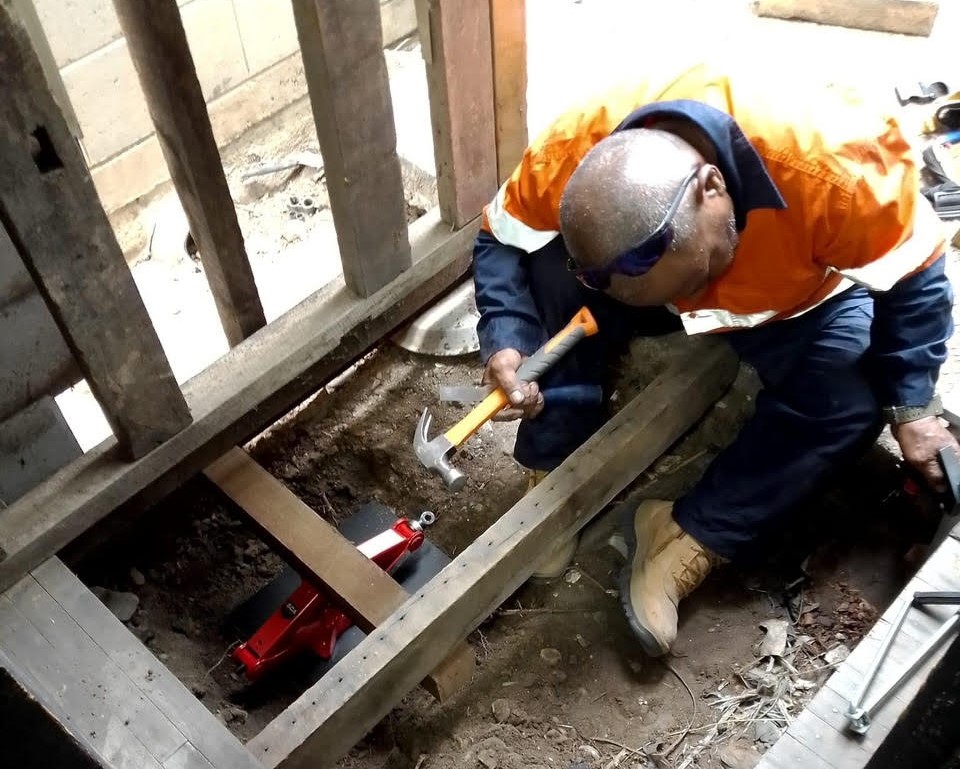
Indigenous-owned ZK Construction Group has a workforce of about 45, most of whom are Indigenous, with many completing apprenticeships as a result of being involved with traditional remote housing projects in their communities. Photo: Supplied.


